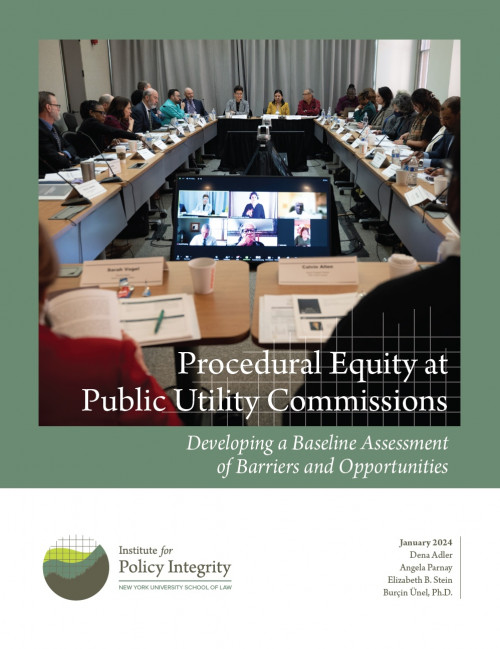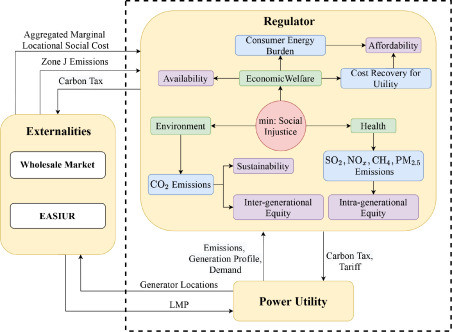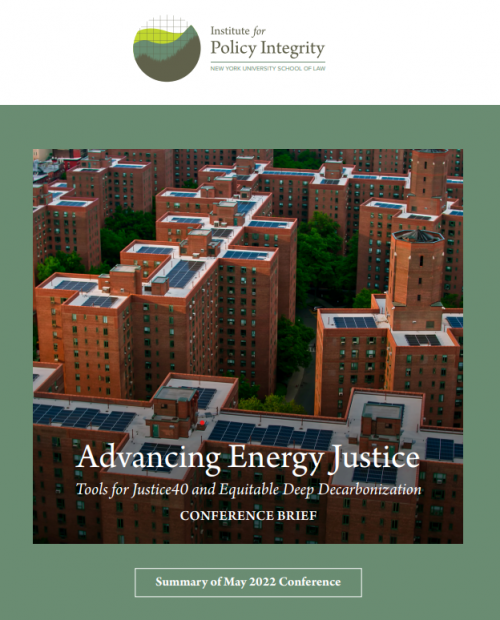-
Distributional Impacts of Carbon Capture in the US Power Sector
Published in the Journal of the Association of Environmental and Resource Economists
While some see carbon capture, utilization, and storage (CCUS) as crucial for cost-effective decarbonization, it faces opposition based on air pollution and equity concerns. To understand this cost–air pollution trade-off, we simulate the potential impacts of allowing CCUS deployment in the U.S. power sector under plausible climate policies. We show that the existence of this trade-off critically depends on the underlying policy, which affects the type of generation CCUS could displace, and that allowing CCUS can yield energy-cost savings, particularly benefiting lower-income communities.
-
Just Regulation: Improving Distributional Analysis in Agency Rulemaking
Published in Ecology Law Quarterly
This Article seeks to understand the shortcomings of current agency practice and outline what agencies can do better. To do so, it examines fifteen significant proposed or final agency rules promulgated during the Biden-Harris Administration’s first eighteen months and reveals four categories of limitations. First, agencies often pursue inconsistent goals across different regulatory initiatives. Second, they do not grapple with the core issue that distributional analysis should raise: the extent to which the better distributional consequences of one alternative should trump the higher net benefits of another alternative. Third, agencies do not apply a consistent approach to defining disadvantaged groups, which makes the analysis inconsistent and unpredictable. Fourth, the distributional analysis relies on a truncated set of costs and benefits, and thus presents an incomplete picture of the consequences of regulation on disadvantaged communities.
-

Procedural Equity at Public Utility Commissions
Developing a Baseline Assessment of Barriers and Opportunities
Combatting climate change will require major transitions in the energy sector. In the United States, state-level entities like public utility commissions play a key role in this transition. Commissions help decide where and when clean energy displaces fossil-fuel combustion, and how costs associated with energy system investments are passed on to consumers, so their actions can affect emissions outcomes as well as the health, energy, environmental, and affordability burdens faced by disadvantaged communities. Although many Commission processes incorporate some form of stakeholder input or participation, it is often difficult for the public to participate due to the technical and complex nature of these proceedings. These challenges present a procedural justice issue. In this report, we reviewed a range of practices for enhancing procedural justice at Commissions in nine states. This review was based on a structured survey of Commissions’ websites, resources available to prospective participants, and relevant statutes and regulations.
-

Electricity Tariff Design via Lens of Energy Justice
Distributed Energy Resources (DERs) can significantly affect the net social benefit in power systems, raising concerns pertaining to distributional justice and equity. Current tariff design approaches suffer from opaque efficiency-equity trade-offs and are also agnostic of the externalities that affect both economic efficiency and equity. Therefore, this paper develops a justice-cognizant tariff design framework that improves the operational savings in the system without sacrificing distributional equity, and encompasses economic welfare, social costs of environmental and public health impacts, and socio-economic and demographic characteristics of electricity consumers. We evaluate four different tariff structures using a Multi-Objective Problem with Equilibrium Constraints. We then compare the operational savings and equity of the proposed framework using the 11-zone New York ISO and 7-bus Manhattan power networks. The results demonstrate that justice-cognizant, and spatially- and temporally-granular tariffs ensure equity and increase the operational savings at a lower energy burden to consumers.
-

Advancing Energy Justice Conference Brief
Tools for Justice40 and Equitable Deep Decarbonization
This brief summarizes some of the major points of discussion from our May 2022 conference, “Advancing Energy Justice: Tools for Justice40 and Equitable Deep Decarbonization.” The event brought together federal agency staff working to implement Justice40 with researchers to discuss how academic research can be more responsive to communities’ needs. This brief summarizes the varied views expressed by conference participants and is not intended to be a consensus or recommendation document.
Viewing all publications in Environmental, Energy & Climate Justice


